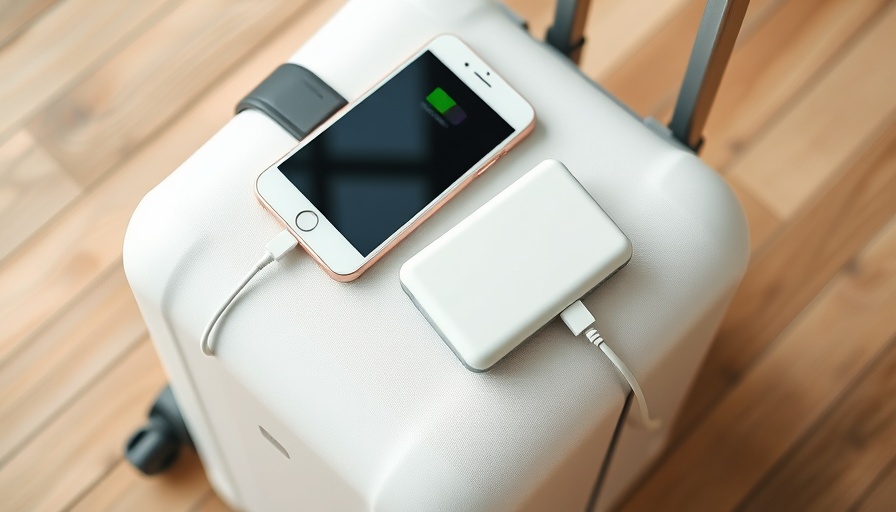
Understanding the Risks: Why Lithium Ion Battery Fires Are a Concern
Lithium batteries are everywhere, powering devices that connect us to the world, from smartphones to tablets. But did you know they could pose a serious danger when flying? The reason lies in a phenomenon known as thermal runaway. When a lithium battery overheats, it can ignite a fire due to its high energy density. Imagine being on an airplane, and a laptop starts smoking. That’s why it's important to know the risks and handle these batteries properly when traveling.
Carry-On vs. Checked Baggage: What You Need to Know
Can you bring lithium batteries on a plane? Yes, but packing them correctly is crucial! The rules differ for carry-on and checked luggage. For instance, most airlines allow lithium batteries in your carry-on, while some larger batteries may only be transported in checked luggage. Before your flight, check your airline’s guidelines to avoid any surprises. Always keep an eye on your devices and make sure you are following the latest regulations.
The Importance of Watt-Hours: Know Your Limits
When it comes to lithium batteries, the Watt-hour (Wh) rating is a critical piece of information. This indicates the battery's capacity, and understanding it can help you safely navigate air travel. Airlines set limits based on these ratings. For instance, most airlines allow batteries under 100 Wh for carry-on. It’s important to look for this rating printed on the battery label. This little number can save you big trouble!
What to Do if You Spot a Battery Incident
If you notice a battery-powered device smoking or at risk of catching fire, don’t panic! Alert the flight crew immediately. They’re trained to deal with these situations. It’s crucial to act quickly and not to try to hide the issue. Your prompt action can help ensure everyone’s safety on board.
Global Efforts in Lithium Battery Safety
Safety doesn’t rely on passengers alone; it’s a combined effort! Organizations like the International Air Transport Association (IATA) and the Federal Aviation Administration (FAA) have established comprehensive regulations for battery safety in aviation. Airlines regularly train their crews on how to handle potential battery fires and provide the necessary tools to respond effectively. This worldwide cooperation is essential to ensure safe flying for everyone.
Tips for Parents: How to Teach Your Kids About Travel Safety
As parents, educating our children about safety is essential, especially when traveling. Discussing the importance of handling lithium batteries responsibly can be an excellent opportunity to teach kids about safety. Share simple tips, such as not leaving devices on charge unattended during the flight and recognizing warning signs of overheating. Making it a fun learning experience can help kids understand why these rules exist.
Future Predictions: The Evolving Landscape of Travel Safety
With technology advancing, we can expect even stricter regulations and innovative safety measures for lithium batteries in the future. Airlines are likely to adopt even more rigorous testing and certifications for batteries, helping to keep passengers safe. As we travel, it’s important to stay informed about any changes to regulations and heed advice from airlines and aviation authorities.
Conclusion: Understanding Battery Safety is Key to Enjoying Your Journey
As you prepare for your next adventure, understanding how to travel safely with lithium batteries is essential. Being informed allows you to enjoy a stress-free journey. Remember to check with your airline, understand the Watt-hour ratings, and always alert the crew of any issues. So, gear up, pack smart, and happy travels!
 Add Row
Add Row  Add
Add 




Write A Comment